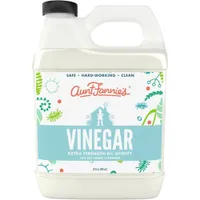How to get rid of chocolate stains –remove marks on clothes, carpets and upholstery
Delicious to eat, yet notoriously tricky to shift from your couch or clothes, here’s how to remove chocolate stains from every surface of your home
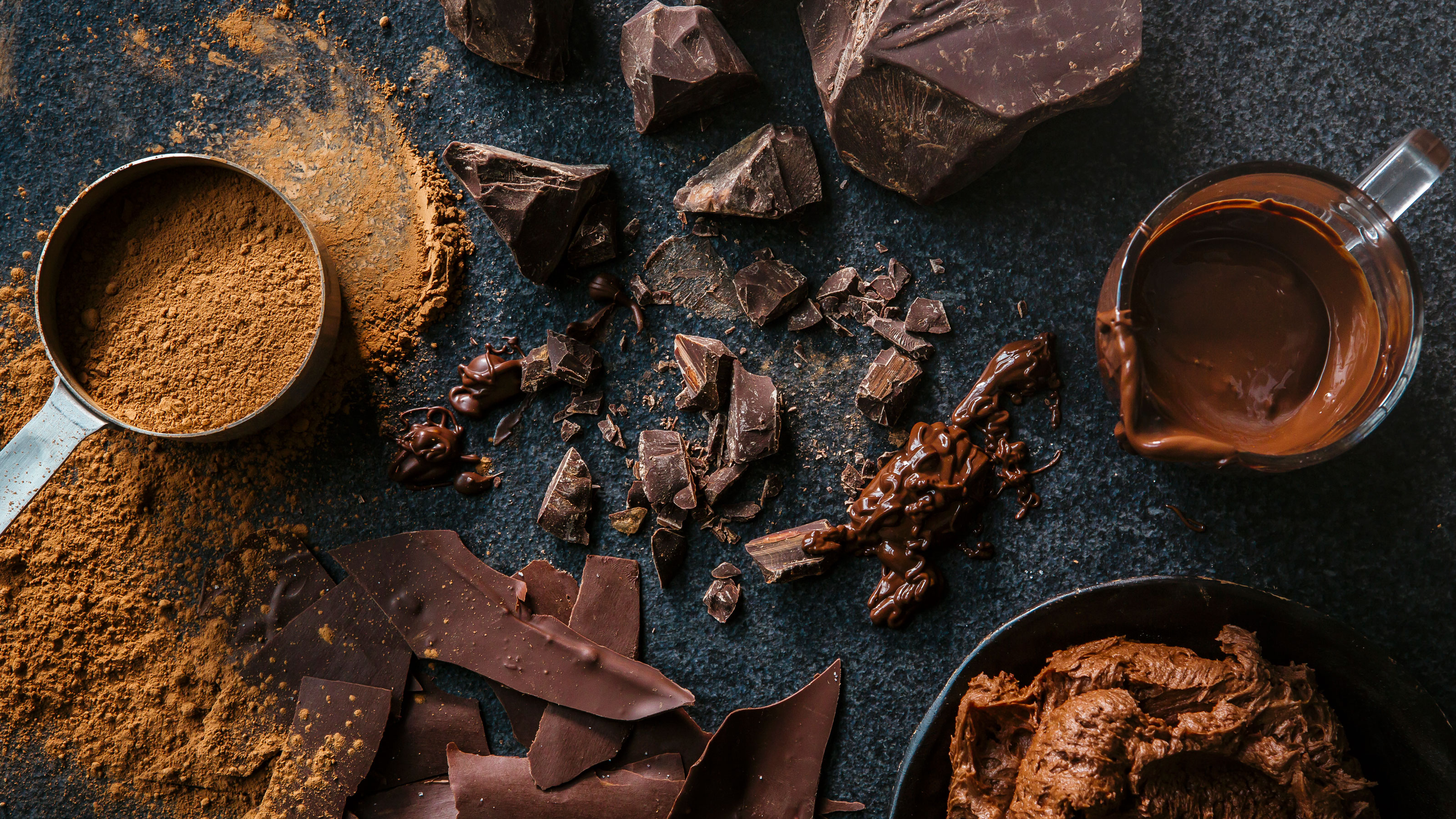
- 1. Remove a chocolate stain while it’s still wet
- 2.Use cold, not hot water to remove chocolate stains
- 3. Make a chocolate stain remover
- 4. Use a vacuum to help remove chocolate from carpets
- 5. Use baby shampoo to get chocolate stains out of leather
- 6. Always let fabrics dry naturally after treating a stain
- FAQs
Design expertise in your inbox – from inspiring decorating ideas and beautiful celebrity homes to practical gardening advice and shopping round-ups.
You are now subscribed
Your newsletter sign-up was successful
Want to add more newsletters?

Twice a week
Homes&Gardens
The ultimate interior design resource from the world's leading experts - discover inspiring decorating ideas, color scheming know-how, garden inspiration and shopping expertise.

Once a week
In The Loop from Next In Design
Members of the Next in Design Circle will receive In the Loop, our weekly email filled with trade news, names to know and spotlight moments. Together we’re building a brighter design future.

Twice a week
Cucina
Whether you’re passionate about hosting exquisite dinners, experimenting with culinary trends, or perfecting your kitchen's design with timeless elegance and innovative functionality, this newsletter is here to inspire
Chocolate may be one of the tastiest substances on earth, but it’s also one of the messiest – and most likely to leave a permanent mark on anything from t-shirts to carpets and couches.
The reason it tends to hang around longer than other foodstuffs? Chocolate is made from a potent combination of fat (butter or milk), which can leave an oily residue on fabrics; and tannins – dark natural pigments also found in tea and red wine – that can discolor them. So, when you’re looking for cleaning tips to banish chocolate marks, you need to make sure you’re tackling both elements of the stain at once.
With this in mind, we’ve asked the experts how to remove chocolate stains quickly and effectively. Read on to discover how to get everything from your child’s favorite top to your living room carpet looking spotless and chocolate-free.
How to remove chocolate stains
The key thing when tackling chocolate stains is to act quickly, particularly with fabrics. ‘Time is of the essence,’ says cleaning expert Alice Lynch, from Myhenry. ‘The quicker the stain is treated, the more effective treatment will be. The longer a stain is left, the more it will embed and dry into the fibers.’
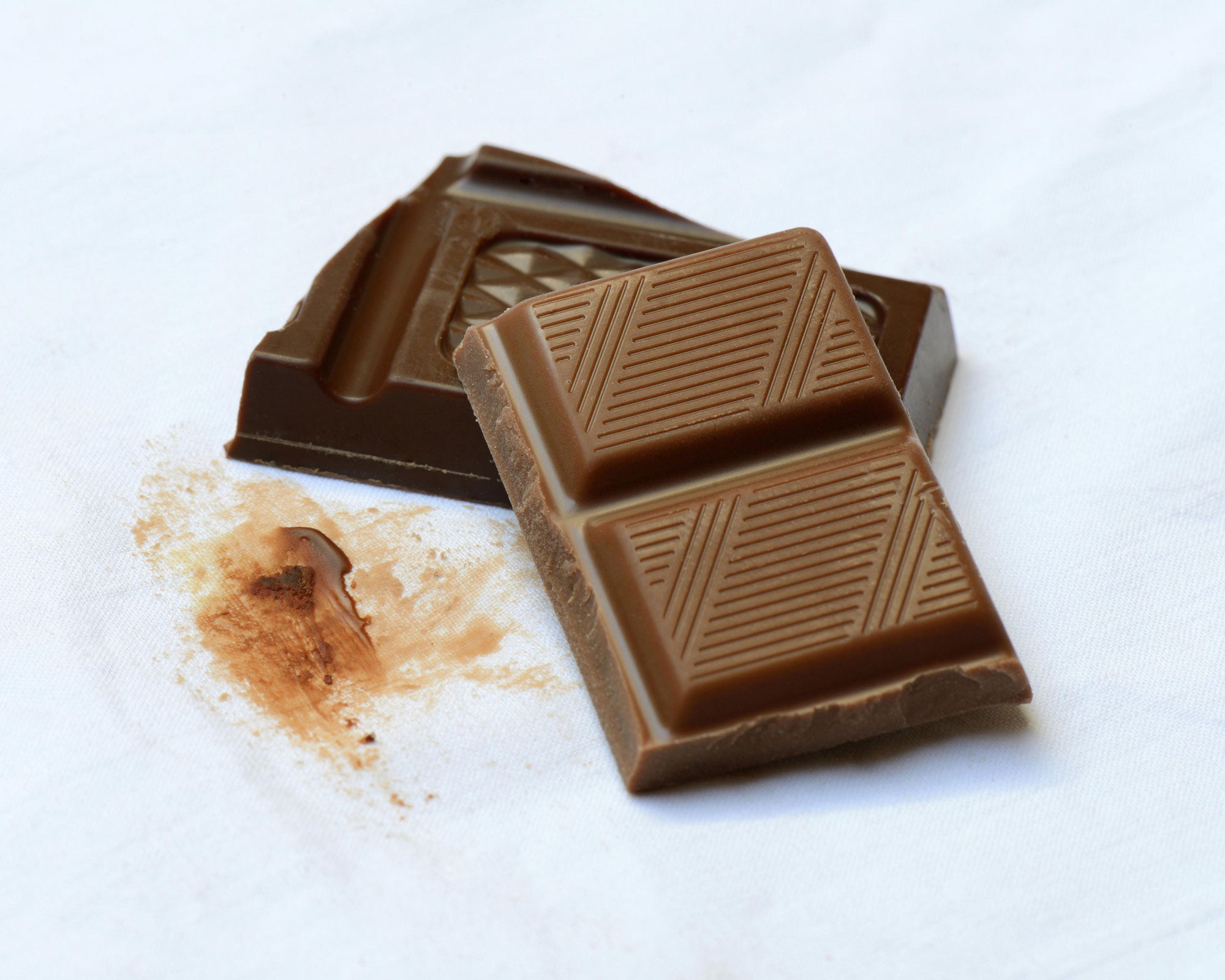
1. Remove a chocolate stain while it’s still wet
As with removing red wine stains, it's generally easier to banish fresh or still-wet chocolate stains from fabric compared to dried ones, because the chocolate hasn’t yet had a chance to bond with the fibers.
‘However, if there is excess chocolate that hasn’t soaked into the fabric, be careful to remove as much excess as possible with a dry paper towel or cloth to avoid rubbing it in and causing a bigger stain!’ advises Alice Lynch.
For really thick stains on clothing, one top tip is to place the item in a plastic bag in your fridge or freezer to harden the chocolate, making the lumps easier to scrape off gently with a brush or blunt knife before tackling the stain itself. You can harden chocolate on a couch or upholstered chair in the same way by holding an ice pack over it for a minute or two.
Design expertise in your inbox – from inspiring decorating ideas and beautiful celebrity homes to practical gardening advice and shopping round-ups.
2.Use cold, not hot water to remove chocolate stains
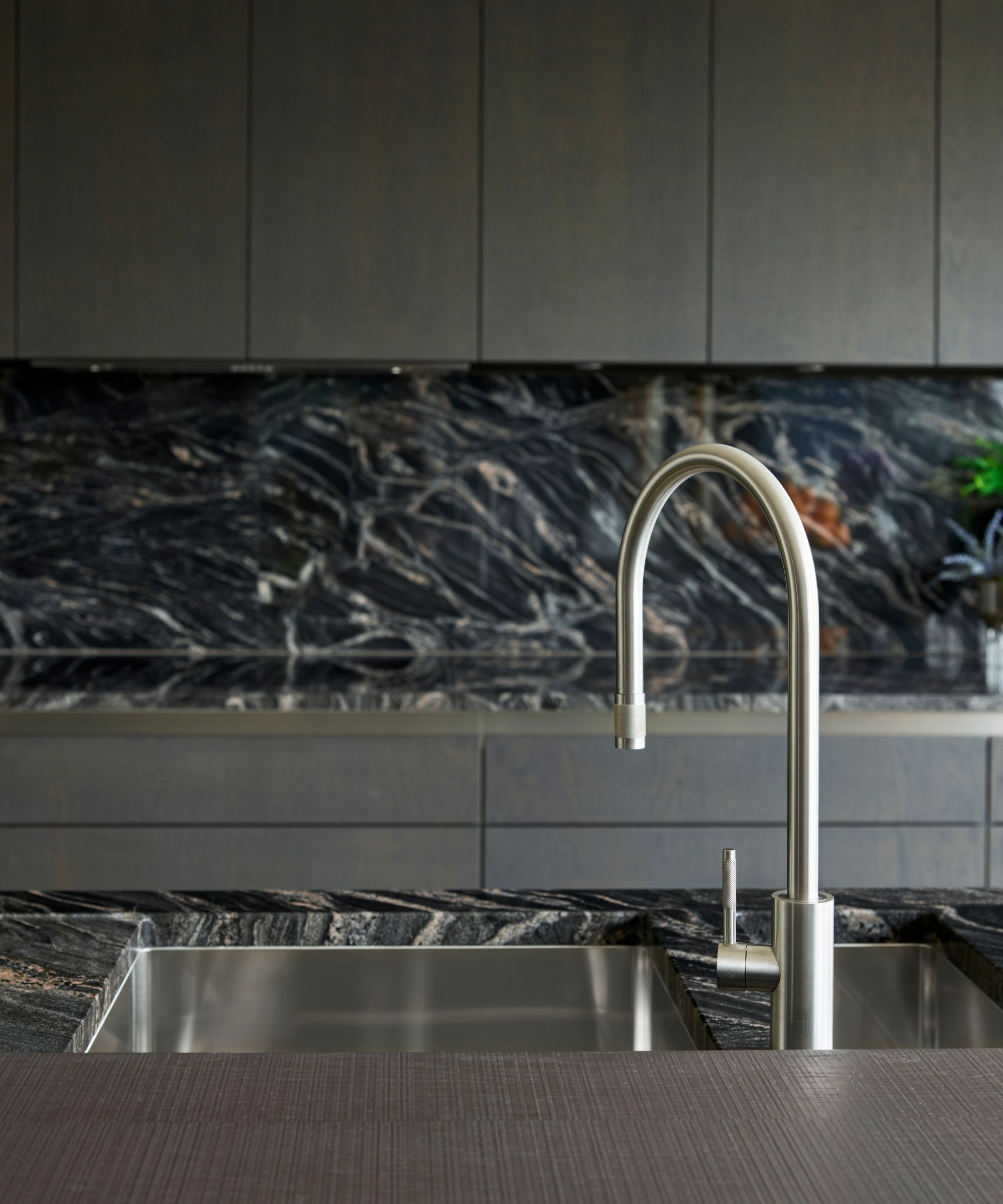
To remove chocolate stains from most fabrics, rinse the stain first with cold water, ideally on both sides of the fabric, to remove as much chocolate as possible.
‘Yes, hot water is generally used in cleaning to kill bacteria, but for removing stains we recommend using cold water because it grabs dirt more effectively,’ explains Alice Lynch. ‘Hot water may do the opposite by encouraging the stain to set and the chocolate to cling to the fibers more.’
It can also melt the chocolate further, causing it to spread.
3. Make a chocolate stain remover
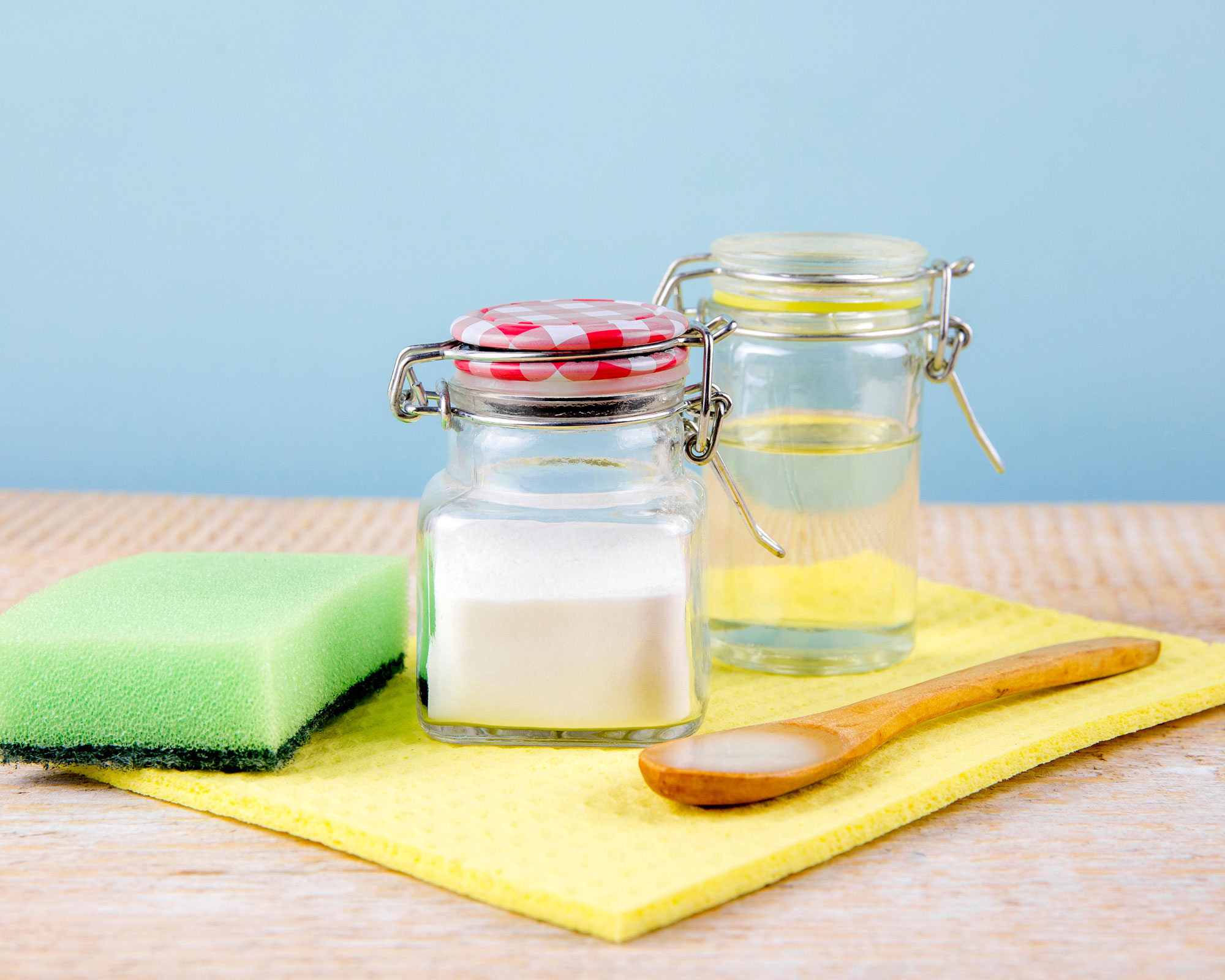
The good news is, you should find everything you need to remove chocolate stains readily to hand in your kitchen cupboards.
‘For treating clothing, carpets and upholstery, take up a solution of 1 teaspoon dish soap, 1 tablespoon white vinegar, and 2 cups warm water,’ reveals Angela Lee from Hellamaid. ‘Dip a clean cloth into the solution and dab the stained area.’
Dab both sides of the fabric, front and back, and work from the outside of the stain inwards. ‘Then rinse the stain again with cold water and repeat the whole process if necessary.’
Finish by washing the fabric in cold water – or using a sponge to remove any remaining soap from upholstery.
For more tips on how to clean a couch or how to clean curtains, our separate handy guides are super useful.
6% Distilled White Cleaning Vinegar | $11.99 at Amazon
This specially formulated white vinegar with cleaning strength at 6% acidity lifts grime and breaks down grease, mineral deposits, lime scale, and built-up film for a clean space with no residue left behind and no rinsing required.

Angela Lee writes for cleaning company Hellamaid.com and has made it her mission to help others create a cleaner and more organized living space, learning from the experts and staying up-to-date on the latest trends and techniques in the industry. With years of experience in home organization and cleaning, she has a wealth of knowledge to share with readers.
4. Use a vacuum to help remove chocolate from carpets
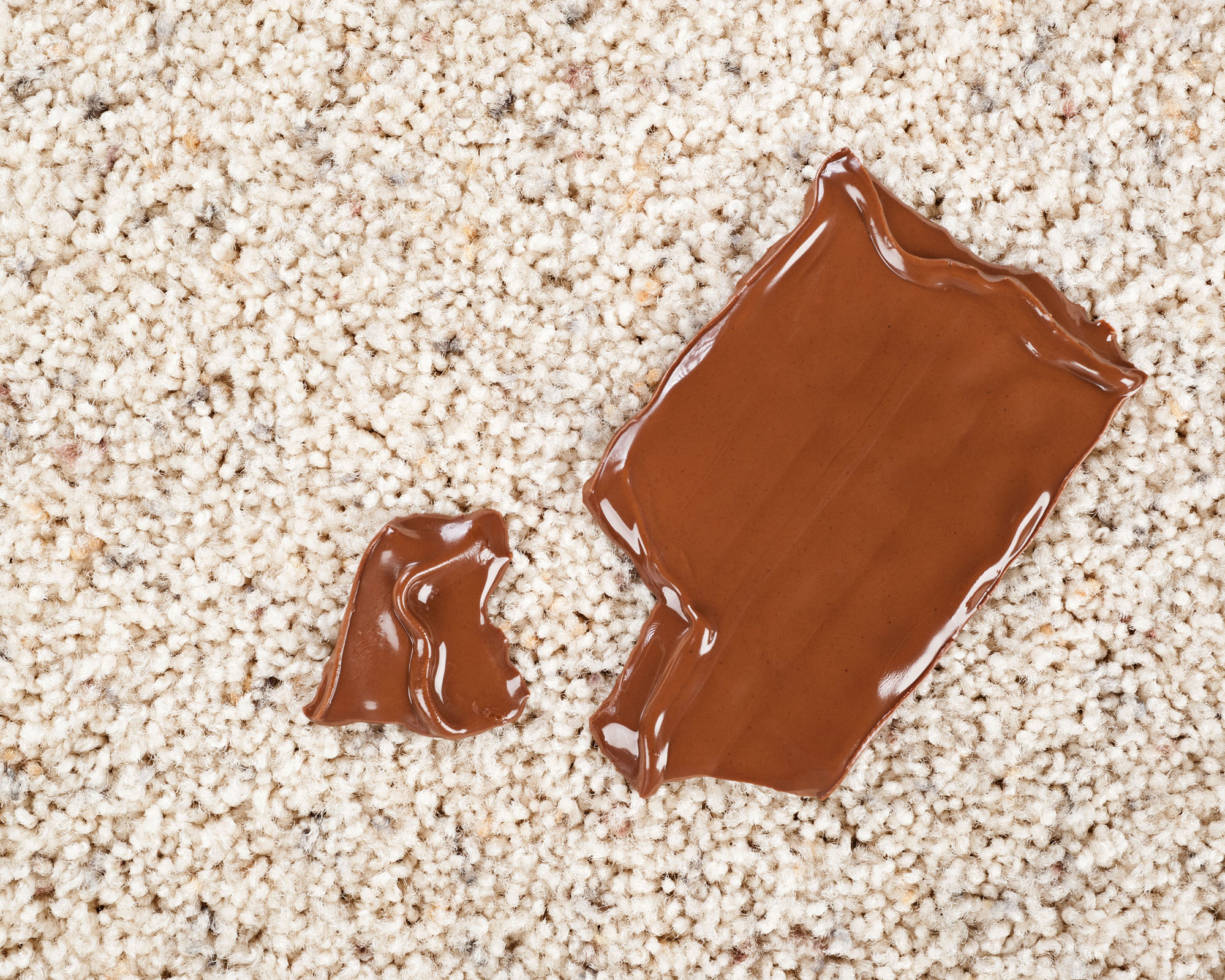
While blotting with a dish soap solution may help with smaller stains, if you need to know how to deep clean a carpet with a bigger chocolatey mark, you may need to use your vacuum cleaner.
‘Standard vacuums are generally not suitable for cleaning up wet areas which could damage the motors of a machine,’ says Alice Lynch, ‘So use a wet-and-dry vacuum (available to buy at Amazon) with a wet mode which you can switch to so that stains can be treated promptly before they dry and set.’

Alice is the founder of Lynch Property Services, and a cleaning expert with international vacuum and carpet cleaning brand Henry. She has years of professional experience advising customers and providing effective and thorough cleaning, gas and electrical services.
5. Use baby shampoo to get chocolate stains out of leather
Leather – such as shoes, couches, bags or jackets – requires a very gentle cleaning solution. ‘Use a damp cloth and a small amount of mild soap, such as baby shampoo, at Walmart,’ says Angela Lee. ‘Gently rub the stain and then rinse with another damp cloth.’
6. Always let fabrics dry naturally after treating a stain
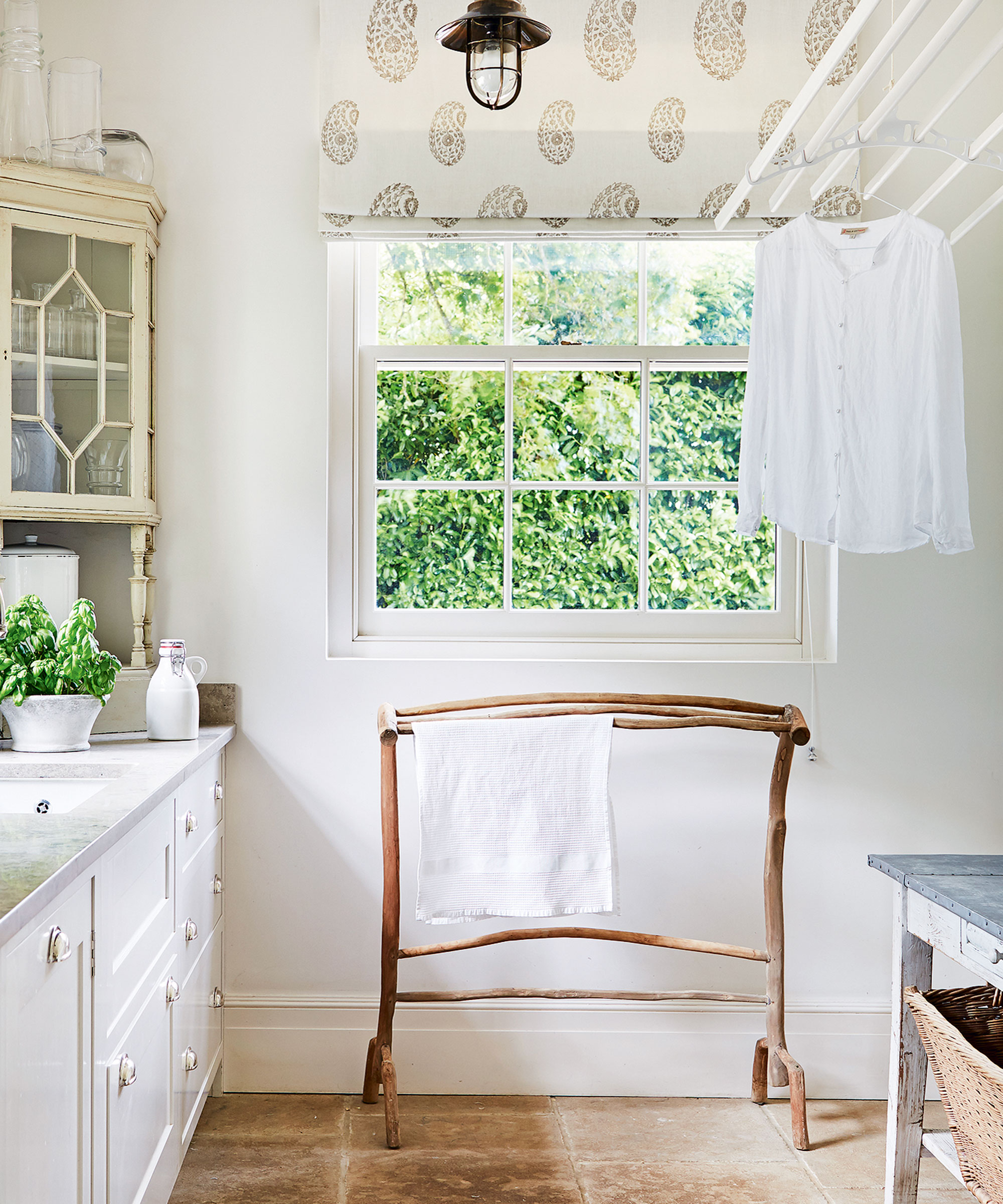
Just as hot water can help a stain to set and become permanent, dry heat can do the same. So, when you’ve finished treating your fabrics, don’t put them in the tumble dryer, on a radiator or blast them with a hairdryer – let them air-dry naturally on a rack or clothes line instead.
This way, if there is any of the chocolate stain left, you’ll be able to try tackling it again once its dried, perhaps with a different method.
How do you remove dried chocolate stains?
While dried chocolate stains take more time and effort to remove than wet ones, it is still possible. Start by removing any easy-to-shift lumps with a soft brush or blunt knife, but don’t rub, pull or scrape too hard on fabrics, to avoid damaging the delicate fibers.
You can then follow the steps above and attempt to remove a dry stain in the same way as a wet one, says Angela Lee. However, ‘some substances, such as baking soda, may not effectively remove dried or old chocolate stains. In such cases, it may be necessary to use a stain remover designed for that particular fabric type.’
Try Carbona Stain Devils #2, at Amazon, specially formulated to tackle ketchup, mustard and chocolate – follow the instructions on the bottle, followed by a normal washing cycle with a biological washing detergent (on sale at Walmart).
To get a grip on wet stains when you’re out and about, stash a portable stain remover in your handbag, such as Tide to Go instant stain remover pen, at Target.
Do chocolate stains always come out?
While chocolate handprints on your couch or pants may look like a disaster, it’s almost always possible to remove chocolatey marks if treated correctly. The key is to act as quickly as possible, before the stain sets.
FAQs
Does baking soda remove chocolate stains?
A natural all-round cleaner, baking soda (buy it at Walmart) can be a really useful tool in removing chocolate stains, however cleaning with baking soda won’t work for all fabrics, and is less effective on older marks. ‘It’s always best to check the care label of your fabric and do a test on a small inconspicuous area first before you start,’ advises Angela Lee.
‘After blotting any excess chocolate with a clean cloth, make a paste of baking soda and water, apply it to the stain, and let it sit for 15 minutes. Rinse the paste off with cold water, then repeat the process until the stain has gone. Finish by washing the fabric with cold water and leaving it to air dry.’
Does toothpaste remove chocolate stains?
Not just for keeping teeth sparkly, toothpaste can also remove chocolate stains, but its effectiveness depends both on the type of toothpaste and the fabric, says Angela Lee.
‘White, non-gel toothpaste can help lift chocolate from fabric, but it’s always best to check the care label and test the solution on a small, inconspicuous area first,’ she advises.
To use toothpaste to remove chocolate stains, first blot any excess chocolate with a clean, white cloth, then apply a small amount of white toothpaste to the stain, rubbing it in with your fingers. Rinse it off with cold water, and if the stain remains, repeat the process until the stain is gone, before washing the fabric in cold water and leaving it to air dry.
How do you remove chocolate stains from hard surfaces?
Thankfully, chocolate is easier to remove from hard surfaces such as walls, floors and work surfaces than it is from fabrics. ‘For glass and ceramics, mix up a paste of baking soda and water to clean the stain, letting it sit for 15 minutes before rinsing off,’ suggests Angela Lee. ‘For stone such as granite or marble, you can simply use dish soap and warm water; while to remove chocolate stains from concrete, use a mix of 1tbsp of baking soda and one cup of warm water.
'Dip a clean cloth into the solution and rug it into the stain, repeating the process until the stain is gone, before rinsing the area with a damp cloth and letting it air dry.’
Jenny has been a features and lifestyle journalist for over 20 years and writes about homes and gardens for a range of national newspapers and magazines. Jenny writes about organization, decluttering and storage for Homes & Gardens.
